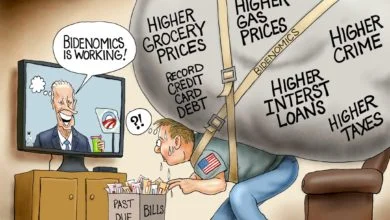Promising New Legislation Could Transform the FDA’s Drug Approval Process, Leading to Better Treatments and Lower Prices
As we emerge from the COVID-19 pandemic, we have an opportunity to reflect on the Food and Drug Administration’s successes and failures.
A radical departure from the standard drug-approval process enabled the development and distribution of life-saving vaccines that allow us to return to normal. But we should not forget that many Americans lost their lives due to the agency’s excessively slow and deliberate approach to approving COVID tests and new treatment options earlier last year. Despite the success of its COVID vaccine rollout, the FDA continues to plod along with time-consuming processes that delay access to life-enriching treatments to the many millions of patients battling cancer, heart disease, and countless other deadly and debilitating diseases.
Consider that decades of experience with patients on death’s doorstep at the Musella Foundation for Brain Tumor Research & Information shows that, despite heroic efforts, only a very small percentage of patients actually gain early access to drugs in clinical trials, or via compassionate use (expanded access) or Right to Try, that might extend or save their lives. Earlier access to new drugs can be structured to the ultimate benefit of patients.
The standard approval pathway requires drug developers to test new medicines in a lengthy series of clinical trials. Trial design, approval, and execution typically takes six to eight years at a huge cost to drug developers in terms of money and time. Then another year or more is taken for FDA analysis and possible approval. This process stifles innovation, produces sky-high prescription drug prices, and denies freedom of choice to those patients who believe early access to not-yet-FDA-approved drugs is in their best interest.
This alternative pathway provides more treatment options for seriously ill patients and leads to reduced drug development costs, more and better research, and a faster-to-market and broader set of treatment options.
There is a solution—the Promising Pathway Act recently introduced in the Senate. It offers an alternative to the conventional FDA regulatory process. There is no change for those comfortable with using only FDA-approved drugs. Patients with especially serious diseases would be able to make informed decisions, with the advice of their doctors, about the use of new drugs that have passed safety trials and shown preliminary efficacy. The new drugs would receive provisional approval thereby enabling access five to seven years earlier compared to the status quo. A new drug receives a two-year approval period which can be renewed every two years for up to six years.
Importantly, patients using provisional-approval drugs will constitute a heterogeneous group with no exclusions for age, sex, race, or health conditions. Data from this diverse group would expedite learning about how the new drugs perform in the real world. In contrast, clinical trial data is constrained by strict admission criteria to ensure a homogeneous group of patients in order to improve statistical analyses.
This alternative pathway provides more treatment options for seriously ill patients and leads to reduced drug development costs, more and better research, and a faster-to-market and broader set of treatment options. This results in heightened competition that compels drug companies to lower prices.
In addition, smaller, financially-constrained drug companies will be able to develop more new drugs due to the radically-reduced cost structure provided by provisional approval. And throughout the industry, many promising drugs that were never tested because of insufficient expected revenue could now be brought to market due to drastically lower regulatory costs.
There is a genuine potential to gather a groundswell of support for freedom of choice—informed, voluntary choice based on patients’ unique health conditions.
Doctors who prescribe provisional drugs will have to monitor patients carefully and report treatment outcomes, side effects, and other anonymized information to a registry (internet accessible database) that can help other patients and doctors determine whether the treatment may be appropriate for them. This data can be used by researchers to improve R&D decisions. Moreover, combinations of new drugs deemed promising by patients’ doctors would be accessible and treatment results would guide subsequent usage. Patients voluntarily choosing what is deemed in their best interest would generate rapid learning to benefit others battling similar serious diseases. In summary, provisional approval leads to a virtuous circle: lower regulatory costs lead to more innovation, which in turn leads to better treatment results, more competition, and lower drug prices.
The FDA makes it possible for a small number of patients to access not-yet-approved drugs through a compassionate use exemption. And in 2018, Congress enacted the Right to Try Act, which in theory gives patients the freedom to use not-yet-approved drugs. But both have significant shortcomings that the Promising Pathway Act is designed to resolve. Drug companies dislike making their medicines available through compassionate use and Right to Try because these avenues impose significant costs with no real benefits to companies. The Promising Pathway Act is designed to incentivize companies to participate by letting companies charge a fee for the drugs and giving them access to real-world data about how effective the provisional drugs really are. And if the real-world data are sufficiently strong, the companies could earn conventional FDA approval.
There is a genuine potential to gather a groundswell of support for freedom of choice—informed, voluntary choice based on patients’ unique health conditions, risk preferences, and up-to-date information on the new drug’s treatment results. This is a pathway to longer, healthier, and more productive lives.
This article was originally published on FEE.org




